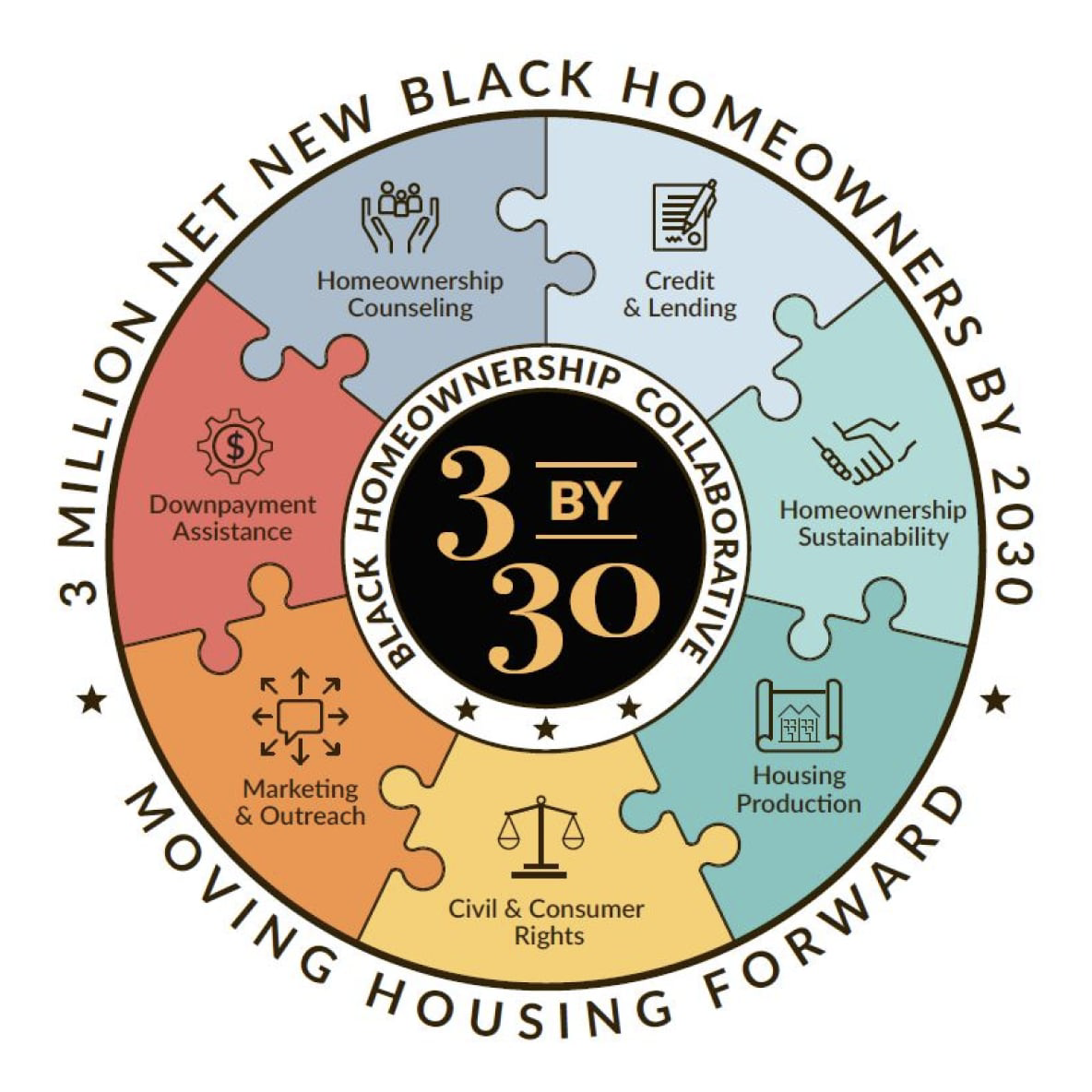Program Seeks to Add 3 Million Black Homeowners
Black homeownership has plunged to lows not seen in decades, reaching 42% in 2019, as low as in 1970, according to the National Community Reinvestment Coalition. A new initiative hopes to change that by creating 3 million new Black homeowners by 2030, which would mark an increase of more than 10 percentage points in the Black homeownership rate. That also would bring the homeownership rate to levels it has never previously attained.
The Black Homeownership Collaborative, a steering committee formed of several associations and companies, including the National Association of REALTORS®, NAACP, Bank of America, and others, has created a seven-point action plan to achieve this goal.
“The legacy of discriminatory practices, as well as official government practices and longstanding harm, has left us with great disparities in wealth and opportunity,” Bryan Greene, vice president of policy advocacy for the National Association of REALTORS®, told Apartment Therapy. “The goal with 3by30 is to recognize that [legacy of discrimination] and to try to figure out where we can begin to make more progress.”
Redlining, racially restrictive covenants, discrimination in appraisals, and high denials for access to credit are some of the ways inequity has persisted in homeownership, the coalition says.
The seven-step plan is designed to add new homeowners and sustain existing homeowners. It calls for pre- and postpurchase counseling for borrowers who have been denied mortgage approvals and special-purpose credit programs. It also calls for a sustainable and targeted down payment assistance program and investments in affordable housing.

“We do need to do something aggressive if we expect to create more homeownership opportunities in this country,” Greene told Apartment Therapy. “We have an interest in the housing industry, and I think society at large, to try to find ways to close these gaps, because our economy and our society benefit from more housing opportunities.”
Source: REALTOR® Magazine